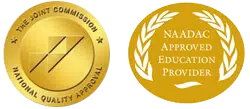Addiction is a serious, life-threatening disease that impacts all aspects of your physical, emotional, mental and spiritual wellness. Just like many other serious health conditions, treating substance use disorders involves the use of evidence-based therapies delivered by highly trained professionals.
If you’re one of the millions of Americans struggling with drug abuse, alcohol abuse, or a combination of mental health disorders and substance abuse issues, going to a recovery center may literally be life-saving.
Here are some of the reasons why a recovery center could be right for you:
You Need Help to Deal With Your Drinking and Drug Use
Chances are good that once you’ve reached the point where you’re researching recovery centers, you’ve already tried to deal with your substance abuse issues on your own.
The reality is that substance abuse disorder is a complex, chronic disease, so there’s no shame in admitting that your need help. After all, you wouldn’t expect someone with diabetes, asthma or any other chronic condition to ‘go it alone’ — the same is true for addictions. Nobody becomes addicted to drugs or alcohol overnight — substance abuse problems tend to develop gradually over a period of time, and going ‘cold turkey’ can be exceptionally dangerous and damaging to your long-term health and wellness.
You Have a Co-Occurring Disorder
Many people who struggle with addictions also have mental health issues, and this is known as a co-occurring disorder or dual diagnosis.
Some individuals turn to drugs and alcohol in an attempt to manage the often debilitating symptoms of their mental illness. For others, their mental illness is triggered by the changes in their brain chemistry caused by their substance abuse. Regardless of the circumstances behind your co-occurring disorder, your best chance of recovery involves working with professionals who understand both mental illness and substance abuse.
Dealing with a dual diagnosis means engaging in a combination of cognitive, or talk therapy; behavioral therapy; and group treatment. Prescription medications may also be appropriate in some cases.
You Need More Help Than You Can Get Through Peer-Based 12-Step Programs
Community-based 12-step programs have helped countless people along their recovery journey, but these programs aren’t a one-size-fits-all solution for substance abuse disorders.
An evidenced-based treatment program at a recovery center can provide you with the personalized care you need to achieve your goals. Treatments can involve a combination of one-on-one, family and small group therapy, as well as participation in a 12-step program. In fact, many people who achieve long-term sobriety through a 12-step program started their journey in a recovery center.
To learn more about what happens at a recovery center, what you can expect, and how to decide if you should go into recovery, contact our team of substance abuse specialists for a confidential consultation.
Baystate Recovery Center, a clinically Infused 12-Step Treatment Center for Drug and Alcohol Addiction, was founded by two partners in addiction treatment services, John Checchi and Michael Wilson.



